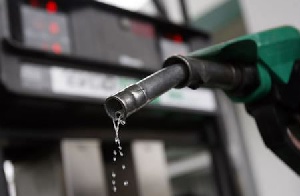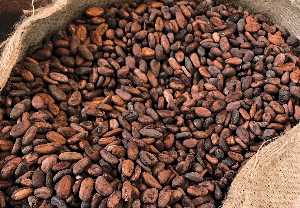Consumers of petroleum products in Ghana can now look forward hopefully towards a rare decrease in pump prices for both gasoline and diesel, as well as LPG.
However the beginnings of possibly a sustained fall in global oil prices, which would drive a fall in pump prices for petroleum products in Ghana will not have the desired impact during the latest pricing window as implemented by the National Petroleum Authority which began yesterday, February 16; rather consumers will have to wait for the next pricing window effective from March 1, by which time the fall in global oil prices, which has commenced in the wake of slackening global demand – itself primarily the result of the coronavirus outbreak – would have had a more significant effect on the computations used by the NPA to arrive at its indicative prices.
However this wait will be an uncertain one – resumed cedi depreciation, a sharp fall in global oil production or a resumption of geo-political tensions in the Middle East could put paid to the downward oil price trend during this period.
Ghana’s petroleum products price build up effective from yesterday, February 16, based on the average daily prices between January 27th and February 11th resulted in US$536.77 per metric ton for petrol; US$503.38 per metric ton for gas oil; US$446.67 for LPG; US$542.65 per ton for aviation fuel; and US$397.02 for fuel oil.
The next pricing window, effective from March 1, however will be computed using daily averages for the two week period February 12th to 26th and if the current downward trend in global oil prices continues this will translate into significantly lower price build ups.
Right from the very first day of the period for price build up (PBU) computations, the NPA has already computed a 0.07 percent decline in the global oil price, from US$55.69 per barrel to US$55.65 per barrel.
Just as crucially it has also computed a 2.19 percent appreciation of the cedi against the US dollar from GHc5.5344 to GHc5.4133. Ultimately these translate into a 0.84 percent decline in the petrol price to US$532.25 per ton; a 2.28 percent fall in LPG; a 0.63 percent decline in aviation fuel to US$539.25; and a 1.45 percent drop in fuel oil to US$1.45.
If the cedi holds steady, or continues to appreciate against the dollar – a real possibility since Ghana has just issued US$3 billion in Eurobonds – and the global oil price drops further, then the price declines being computed in the NPA’s price build up ahead of the next pricing window will become considerably larger by the time it takes effect on March 1.
During the just finished two week pricing window, indicative pump prices announced by the various oil marketing companies in Ghana ranged from 603.13 pesewas per litre for petrol as charged by South African owned Engen, to 527.10 per litre as charged by indigenously owned Blanko Oil. Curiously, the partly state-owned GOIL, which usually sets among the lowest pump prices, did not provide NPA with an indicative price for the last pricing window.
However, its biggest competitors, Vivo and Total, set their prices at 589.00 pesewas and 555.00 pesewas per litre of petrol respectively. Similarly Engen and Blanko respectively also offered the highest and lowest pump prices for diesel during the just finished pricing window at 602.13 pesewas and 527.50 pesewas respectively.
Industry analysts do not expect significant changes in pump prices for the new pricing window as both NPA and the OMCs themselves watch to see how the current market trends unfold, with a view to implementing new prices from the start of the March 1 pricing window.
But even as households, private enterprises and public institutions alike hope that the current market trends continue, many are acutely aware that geo-politics can change global oil prices suddenly and dramatically.
Perhaps the best example of this was the aftermath of the Yom Kippur war in 1973, when the defeated Arab coalition threatened to stop oil exports to the United States and other key allies of Israel as punishment for their pivotal support towards Israel’s victory, which resulted in a sudden quadrupling of global oil prices from US$10 to US$40 per barrel. Instructively tensions between the US and middle eastern major power, Iran remain high.
Business News of Tuesday, 18 February 2020
Source: goldstreetbusiness.com













